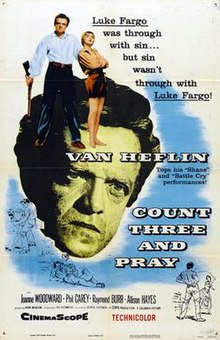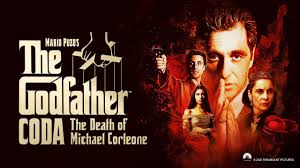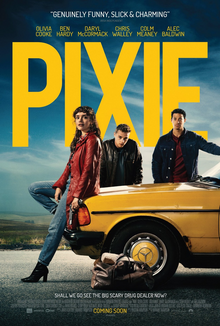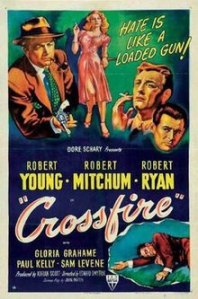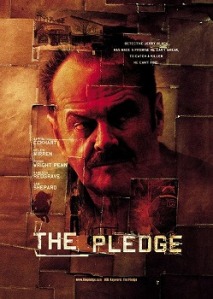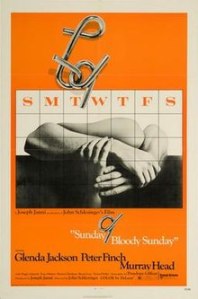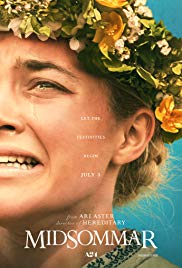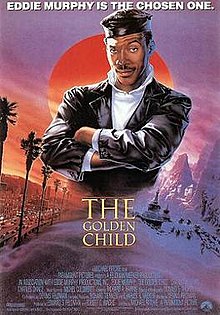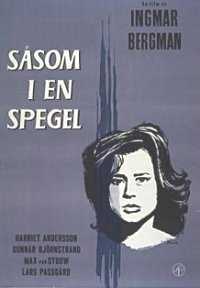
I felt I had to tell you even if it would interrupt your writing. Four family members take their holiday on a remote Swedish island, shortly after one of them, Karin (Harriet Andersson) is released from a mental hospital where she has been treated for schizophrenia. Karin’s husband Martin (Max von Sydow), a doctor, tells her widowed father David (Gunnar Björnstrand) that Karin’s disease is almost incurable. Meanwhile, Minus (Lars Passgård), Karin’s 17-year-old brother, tells Karin that he wishes he could have a real conversation with their father and feels deprived of his father’s affection. David is a novelist suffering from writer’s block who has just returned from a long trip to Switzerland. He announces he will leave again in a month, this time for Dubrovnik, though he promised he would stay around. The other three perform a play for him that Minus has written. David feigns his approval but takes offence since the play could be interpreted as an attack on his character. That night, after rejecting Martin’s erotic overtures, Karin wakes up and follows the sound of a foghorn to the attic. She faints after she hears voices behind the peeling wallpaper. She then enters David’s room and after he puts her to sleep on the couch and leaves the room she looks through his desk and finds his diary, seeing his description of her disease as incurable. She discovers his desire to record the details of her deterioration. The following morning, David and Martin, while fishing, confront each other over Karin. Martin accuses David of sacrificing his daughter for his art and of being self-absorbed, callous, cowardly and phony. You’re trying to fill your void with Karin’s extinction. David is evasive but admits that much of what Martin says is true. David says that he recently tried to kill himself by driving over a cliff during his stay in Switzerland but was saved by a faulty transmission. He says that after that, he discovered that he loves Karin, Minus and Martin, and this gives him hope. Meanwhile, Karin tells Minus about her episodes, and that she is waiting for God to appear behind the wallpaper in the attic. Minus is somewhat sexually frustrated, and Karin teases him, even more so after she discovers that he hides a porn magazine. Later, on the beach, when Karin sees that a storm is coming, she runs into a wrecked ship and huddles in fear. Minus goes to her and she embraces him incestuously before recoiling in shock at her overture. Minus tells his father about the incident in the ship and Martin calls for an ambulance. Karin asks to speak with her father alone. She confesses her misconduct toward Martin and Minus, saying that a voice told her to act that way and also to search David’s desk. She tells David she would like to remain at the hospital, because she cannot go back and forth between two realities but must choose one … Am I little or has the illness made a child of me? Do you think I’m strange? The first in Swedish auteur Ingmar Bergman’s Faith trilogy, this is a precise portrait of family, isolation, mental illness and the vicious vaunting ambition of writers. You’re hunting for themes. Your own daughter’s mental illness! This horrible exchange around 52 minutes in reminds us of the famous Nora Ephron saying, Everything is copy. The first of Bergman’s films to be shot on the island of Faro (at the suggestion of his regular collaborator, cinematographer Sven Nykvist), this quite personal four-hander was conceived as a Strindbergian three-act play, featuring the steady acceleration of tension as the daughter succumbs to the worst aspects of mental illness following a major discovery and each act forming a mirror panel to reveal the drama from different angles. It’s always about you and yours. Your callousness is perverse, say von Sydow as the son-in-law to the remote novelist heartlessly exploiting his daughter’s condition for his writerly ends. I think it’s God who shall reveal himself to us, declares Karin, before admitting she has seen God and he is a spider. What the hell can I do? wails her younger brother having escaped her clutches yet wanting her to regain her health. Eventually as Karin descends into the depths of madness her father recognises the re-enacting of history – Karin is going the way of her late mother and he finally understands his own role in the women’s demise. Utterly desolate and merciless, with Andersson unforgettable as the young woman who finally loses her mind. I can’t live in two worlds
